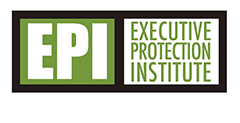In honor of “Throw Back Thursday” we reached into our Archives and found a great article “Personal Protection Networking” written by Dr. Richard W. Kobetz, Founder of Executive Protection Institute in 2003. Much of the information shared in the article still holds true today!
It is most interesting that many would-be Personal Protection Specialists have taken the inconvenience and expense of investing in a formal education at a college or university; have taken a long-term training program or have served in the armed forces. Each endeavor represents considerable expense, tremendous investment of time and/or performance of studies and duties. Neither individually nor collectively have these accomplishments resulted in or guaranteed success in obtaining or actual performance in a position. Still, some in the Personal Protection field believe that with the investment of a few thousand dollars and one week of instruction in a program, there is instant professional performance capability for this new career. And, having completed a few dozen hours of training, they are now qualified to immediately perform personal protection services alongside career agents with years of on-the-job experience. Possible for some, but not a likely possibility for most. But, nevertheless, the first step in any career field, as many a job seeker can attest to, is to find a position you are qualified and selected for.
Top ten percenters will recognize that you first must intelligently build a solid foundation of ability. This may begin with formal education, training programs, reading, and learning all there is available to you on the subject. These accomplishments are blended with solid personal traits of honesty, courtesy, humor, and personal discipline. Your anticipation must consider your ability to be adaptable, dependable, and flexible in your position as a personal protection practitioner. And most important of all, you network in order to obtain contacts that may directly or indirectly assist you with opportunities for employment.
Networking has been around for a long time, however, most of us still do not fully understand what it really is. Basically, it connects people with people. It is a valuable form of communication, and the key to success is making it work for you. You must be committed, dedicated, and motivated to network by understanding what it means to personal and business success.
Sending or handing out a business card, brochure, letter or any other paper or cardboard connection and waiting for the telephone to ring is not networking. People have to meet you, talk to you, and get to know you in order to form opinions about you before they will reach a conclusion to work with you or offer you a job. They have a great deal more at risk than you have if they have made the wrong choice.
We are in a professionally dangerous time in history where many men and women have adopted the philosophy of self-importance based upon an illusion of “you can do anything you want to do,” or “have it your way.” After all, you must be assertive and have self- confidence, not be used, or abused, and no one can tamper with your illusion of reality. [This may be true if you have taken the time and inconvenience to “become” someone, rather than the all-too-common notion of wanting “to be” someone instantly]
Keep in mind the awareness of ego, which is the most common problem blocking success today. “Good ego,” like “good cholesterol,” is the belief that you can succeed, coupled with the ability and the capability to perform, which is something you need to perform the job well. As opposed to bad ego, like bad cholesterol, which can cause you problems, when you are not really able or capable of performance in the required manner for the specific assignment, and somehow you believe you have the absolute correct answer for any challenge.
Remember, who you know and who knows you is the basis of networking, and you never outgrow your need for contacts. Networking is not just appearing somewhere one time; it is interacting with people. A network activity merely gives you a place to do it. You build your own network just like one builds anything worthwhile: slowly, with patience and quality. Whether it works or not is ultimately up to you. Remember, with all contacts you have one opportunity to make a first impression. Mistakes and errors are costly and very difficult to correct, and gossip and rumormongers love to spread negative, not positive information about your mistakes. As in all endeavors, the losers of life are waiting to attack the beginners and the winners.
Networking is not an event. It is a process of building relationships. By becoming part of a networking organization, you are not taking over other people’s networks. You have to do more than merely pay dues to a professional organization; you must appear at activities and events and make personal connections with people. Talk to people, be curious, ask questions and follow through if you make commitments to call or send an article of interest. Do not have dead- end conversations. Be open and articulate. Networking is an exchange, not an exploitation. Give more than you get. Personal contacts will always get things done; they speed up the process to success. You are the C.E.O. of your own network, and it is totally your responsibility. No one else can do it for you.
REMEMBER
- Networking Never Stops. Use Every Opportunity.
- Courtesy and Politeness Work Magic.
- Networking Works Both Ways. Listen Before You Speak.
- Your Most Important Asset Is Your Reputation.
- Networking Is A Connector.
- Nothing Less Than Your Best Is Ever Good Enough.
- Don’t Worry About Who’s Right. Worry About What’s Right.
- Ability Is Nothing Without Opportunity. Network for Opportunities.
- Never SUBMIT Your Resume Unless Requested to Do So.
- There Are No Limits to Networking. Keep At It.
Copyright © 2003, Executive Protection Institute

